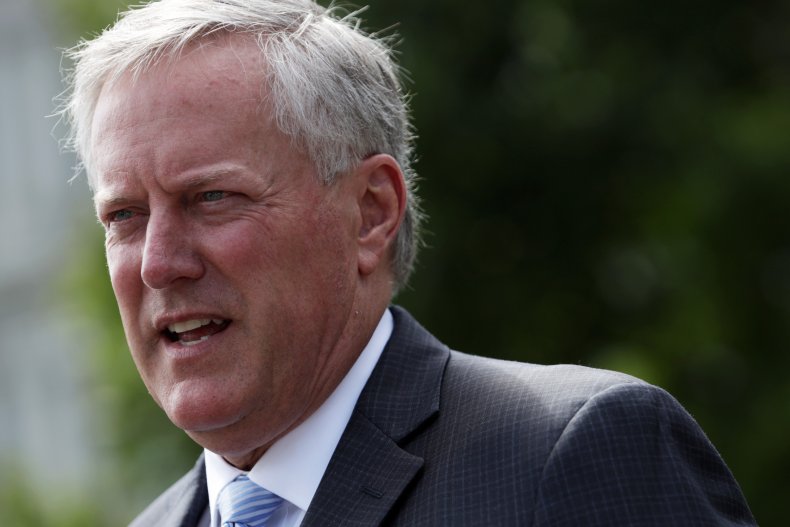In a sign that Congress may be able to agree on another round of relief, the bipartisan Problem Solvers Caucus put forth a stimulus package of their own—a move that could be encouraging to the White House.
White House Chief of Staff Mark Meadows told reporters on Wednesday that it was “very thoughtful” and “very meaningful” to see Republicans and Democrats coming together to put forth a stimulus package. Unveiled on Tuesday, the package provides funding for a number of measures included in the bipartisan CARES Act, such as unemployment and another round of stimulus checks.
While it may seem like an indication of the two sides of the political aisle coming together for relief after weeks of stalled talks, Meadows wasn’t confident it was reflective of House Speaker Nancy Pelosi’s position. However, if it serves as the foundation for a real desire to get a deal done, “we’re encouraged by that.”
On Tuesday, Pelosi told CNBC that the House will remain in session until legislators can agree on another round of relief that “meets the needs of the American people.” During a conference call that morning, she told House Democrats they had to stay in Washington, D.C, “until we have a bill.”
Newsweek subscription offers >
Meadows called Pelosi’s willingness to stay in session “another encouraging sign,” but added that his experience in Congress taught him “promises on air don’t necessarily provide real fruit behind closed doors.” Conversations he’s had on Capitol Hill gives him the “growing sense” that there are “real needs that need to be addressed.”

Alex Wong/Getty
The Problem Solvers Caucus’ plan provides $100 billion for testing and health care, $240 billion for the Paycheck Protection Program, and $145 billion for schools and child care. It also allocates about $500 billion for state and local aid, including $130 billion from the CARES Act.
When asked what the sticking point was in the proposal, Meadows said the “biggest obstacle” remains the amount of money afforded for state and local governments.
Newsweek subscription offers >
“But there was a caveat there that was based on real revenue losses, and that caveat gives me hope that if we’re willing to look at real facts and real losses that hopefully we can get to something that actually makes sense,” Meadows said.
The package allows for a reduction of $130 billion to state and local aid based on COVID-19 hospitalization metrics and vaccine progress.
Along with reducers, the package allows for boosters if conditions take a turn for the worse. If unemployment remains a significant problem in February, three months of enhanced benefits will automatically kick in. Depending on the situation in March, people could see a third stimulus check, as well.
“Our group put aside brinkmanship and political games,” Representative Dusty Johnson, a member of the bipartisan caucus, said in a statement. “Once we focused on what was good for the country, it didn’t take us long to find common ground. This is how Congress is supposed to work.”
Read More: Bipartisan Plan for Stimulus Checks ‘Very Meaningful,’ White House Chief of






















